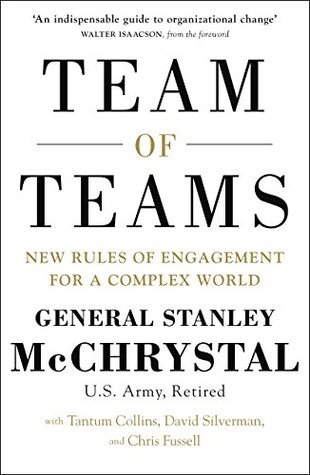More on this book
Community
Kindle Notes & Highlights
Efficiency remains important, but the ability to adapt to complexity and continual change has become an imperative.
The Old Man of the Sea was defeated. By adapting, the Greeks found their way home.
The pursuit of “efficiency”—getting the most with the least investment of energy, time, or money—was once a laudable goal, but being effective in today’s world is less a question of optimizing for a known (and relatively stable) set of variables than responsiveness to a constantly shifting environment. Adaptability, not efficiency, must become our central competency.
war. Interconnectedness and the ability to transmit information instantly can endow small groups with unprecedented influence: the garage band, the dorm-room start-up, the viral blogger, and the terrorist cell.
AQI’s very structure—networked and nonhierarchical—embodied this new world. In some ways, we had more in common with the plight of a Fortune 500 company trying to fight off a swarm of start-ups than we did with the Allied command battling Nazi Germany in World War II.
At the very core of his plan was what he later termed “the Nelson touch”: the idea that individual commanders should act on their own initiative once the mêlée had developed. Noting that plans could be easily foiled, he gave a final, simple piece of advice: “No captain can do very wrong if he places his ship alongside that of the enemy.”
As Nicolson observes, Napoleon had forbidden Vice-Admiral Pierre-Charles Villeneuve to tell his captains at any stage what the grand strategy for defeating England might be. Adkins adds that “this reliance on orders from a central command proved a recurring weakness in the French and Spanish navies where, by tradition, commanders of individual ships awaited orders transmitted in flag signals that could be hidden by smoke, cut down by enemy fire, or merely misunderstood.”
At its heart, Nelson crafted an organizational culture that rewarded individual initiative and critical thinking, as opposed to simple execution of commands.
At the heart of his success was patient, yet relentless, nurturing of competence and adaptability within his crews.
Here, for organizations, lies the critical nexus between theorized strategy and realized victory—the ground where doctrinaire
states that commanders should mass the effects of overwhelming combat power at the decisive place and time.
This standardization enabled the Romans to construct camp defenses quickly and efficiently. Soldiers could move between units and still participate in construction without breaking the orderly flow of work.
small inefficiencies multiplied at industrial scale reduce productivity.


